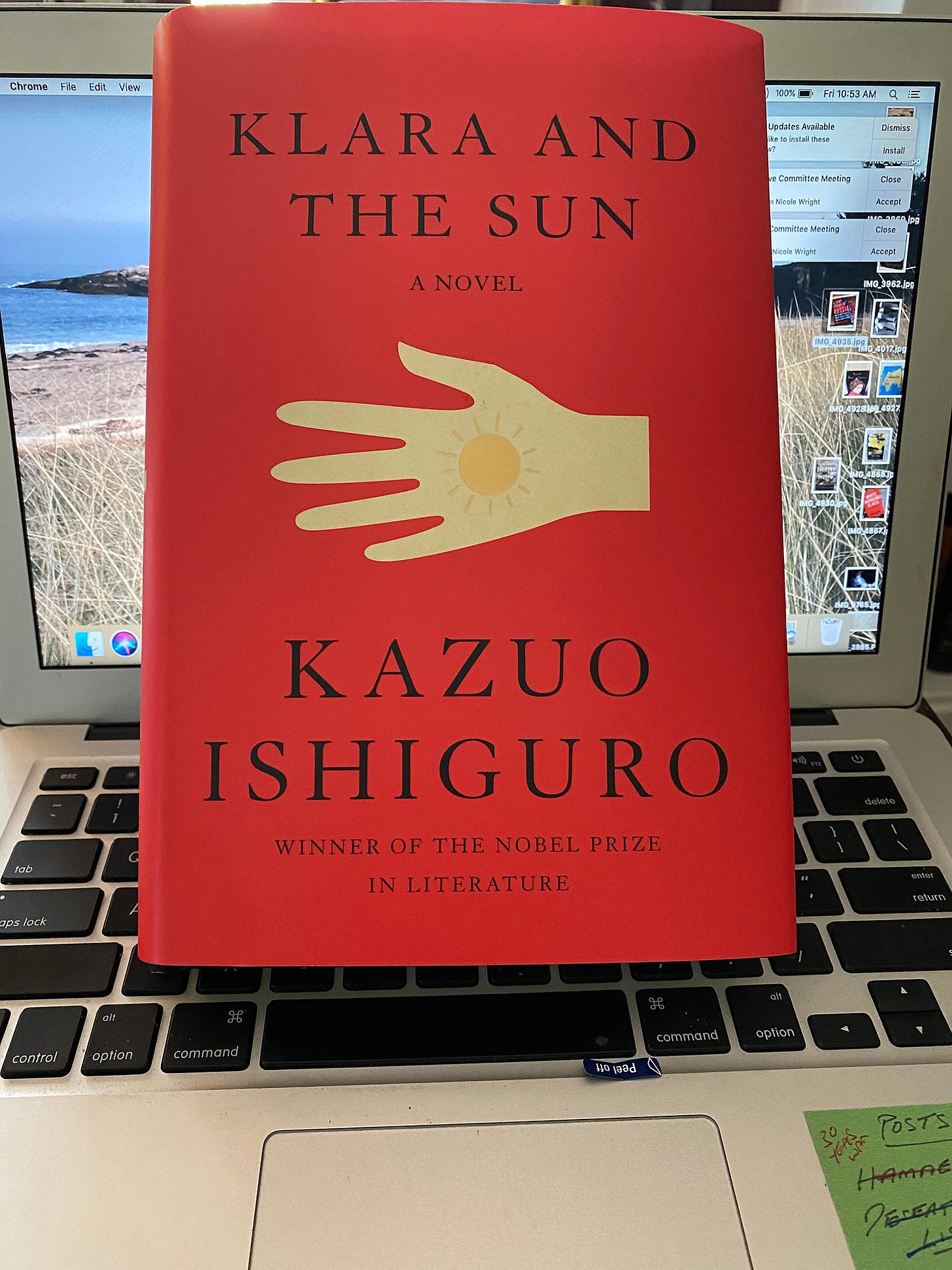Review of KLARA AND THE SUN
It is all here in 304 pages ... what book clubs should read.
Too often a Nobel Prize goes to a writer I have never heard of and when I try to rectify my ignorance, I am frequently disappointed by this apparently world class talent. I immediately think of the many other writers the committee overlooks – so often writers that are actually read and, thereby, contribute to our world’s level of literacy and self-awareness. So much for the soap box …
When Kazuo Ishiguro won in 2017 I had no such reaction. I consider Remains of the Day one of the great works of contemporary fiction that will survive the test of time even when time seems to be as scolding as it is today. Never Let Me Go was a disturbing, brilliant read that feels very close to this most recent novel. An uncertain dystopia frames Never Let Me Go and arrestingly provides it with a humanity and emotion that is unnerving and pure. I used it in class when teaching The Age of Innocence as a vehicle to discuss societies where love is dangerous and subversive. I may have used it more because I simply loved rewatching that terrific film adaptation each year. I have read a couple other of his works but they do not compare (in my mind) to the two I just mentioned. My reverence and my mild disappointments thus set me up for his new book, Klara and the Sun.
I do not know if I can say this book is his best. Remains of the Day might be a better novel. But, what this most recent book may lack in the stylistic beauty of Ishiguro’s story of an English butler it makes up for in its ability to suggest everything. The story of an artificial intelligence robot named Klara and her brief sojourn with a family in a future that feels all too ominously ours, is a story that touches on:
how we love and what love is
how we sought God and why
technology as both sublime and banal
our modern world of “haves” and “have nots” (and … what is it we actually “have”)
the issues of culture wars and climate change …
family
friendship
loss
It is a future where something terrible continues to happen. You are on your own to figure that out. It is a future with powerful Artificial Intelligence (AF) but the extent to which it is applied or accepted is barely addressed. It is a world where trust and love seem more wounded than usual – even by today’s standards. Everything is both familiar and different – even the central character, the AF robot, Klara. Clearly this book achieves many things in its sparse prose over 304 pages. How?
Ishiguro tells the story from the point of view of Klara. It is both supremely omniscient and supremely not. It is a pure construct, even a conceit, perfectly engineered or programmed by Ishiguro. The result is a narrator not entirely of this world but utterly invested in it. It is as if you are thinking about human beings for the first time but without the big brother voice of science fiction. Instead, it is the precise, repetitive, controlled but acutely aware voice of the outsider programmed to be both within and without. The stale weaknesses of our species are laid bare in the quietest of ways while our capacity to love and feel overwhelm you both in its absence and sudden appearance.
Often Klara’s vision breaks down into boxes – not unlike the security drill we go through to satisfy our digital counterparty that we are not a robot! Her breakdown I suspect is when her programed mind generates anxiety. You feel for her. I suspect that we live within the intersecting but separate boxes that she tries to navigate. We want them to go away. We want the world to cohere. But our fears and anxieties do not allow it. This novel, lit by Klara’s sun, is that world. Its very unfamiliarity makes it shockingly and intimately familiar.
Klara and the Sun
by Kazuo Ishiguro (2021)
320 pages


